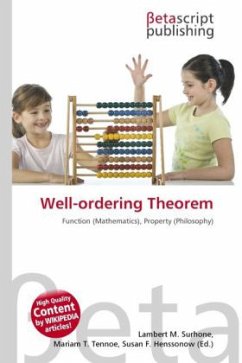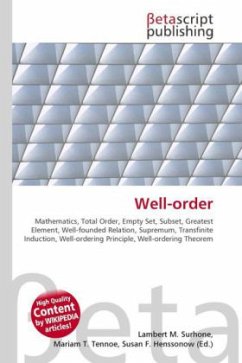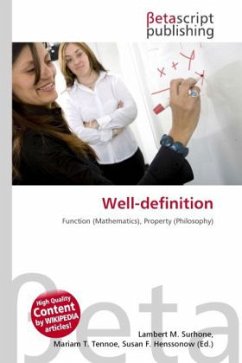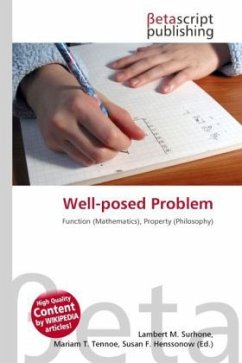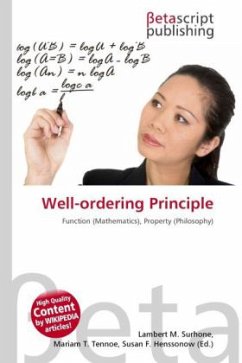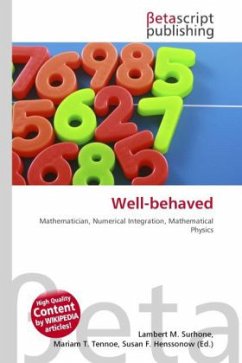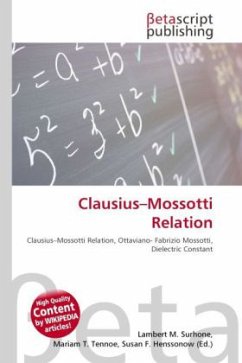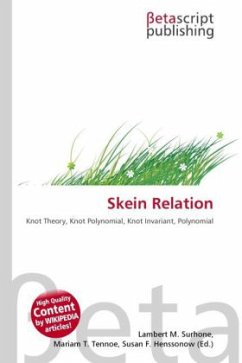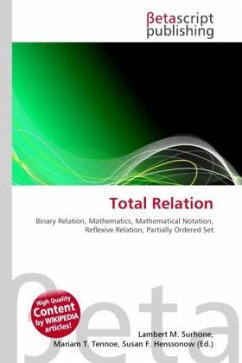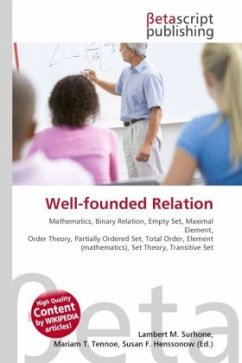
Well-founded Relation
Versandkostenfrei!
Versandfertig in 6-10 Tagen
23,99 €
inkl. MwSt.

PAYBACK Punkte
12 °P sammeln!
High Quality Content by WIKIPEDIA articles! In mathematics, a binary relation, R, is well-founded (or wellfounded) on a class X if and only if every non-empty subset of X has a minimal element with respect to R; that is, for every non-empty subset S of X, there is an element m of S such that for every element s of S, the pair (s,m) is not in R. Equivalently, assuming some choice, a relation is well-founded if and only if it contains no countable infinite descending chains: that is, there is no infinite sequence x0, x1, x2, ... of elements of X such that xn+1 R xn for every natural number n. In...
High Quality Content by WIKIPEDIA articles! In mathematics, a binary relation, R, is well-founded (or wellfounded) on a class X if and only if every non-empty subset of X has a minimal element with respect to R; that is, for every non-empty subset S of X, there is an element m of S such that for every element s of S, the pair (s,m) is not in R. Equivalently, assuming some choice, a relation is well-founded if and only if it contains no countable infinite descending chains: that is, there is no infinite sequence x0, x1, x2, ... of elements of X such that xn+1 R xn for every natural number n. In order theory, a partial order is called well-founded if the corresponding strict order is a well-founded relation. If the order is a total order then it is called a well-order. In set theory, a set x is called a well-founded set if the set membership relation is well-founded on the transitive closure of x. The axiom of regularity, which is one of the axioms of Zermelo-Fraenkel set theory, asserts that all sets are well-founded.



